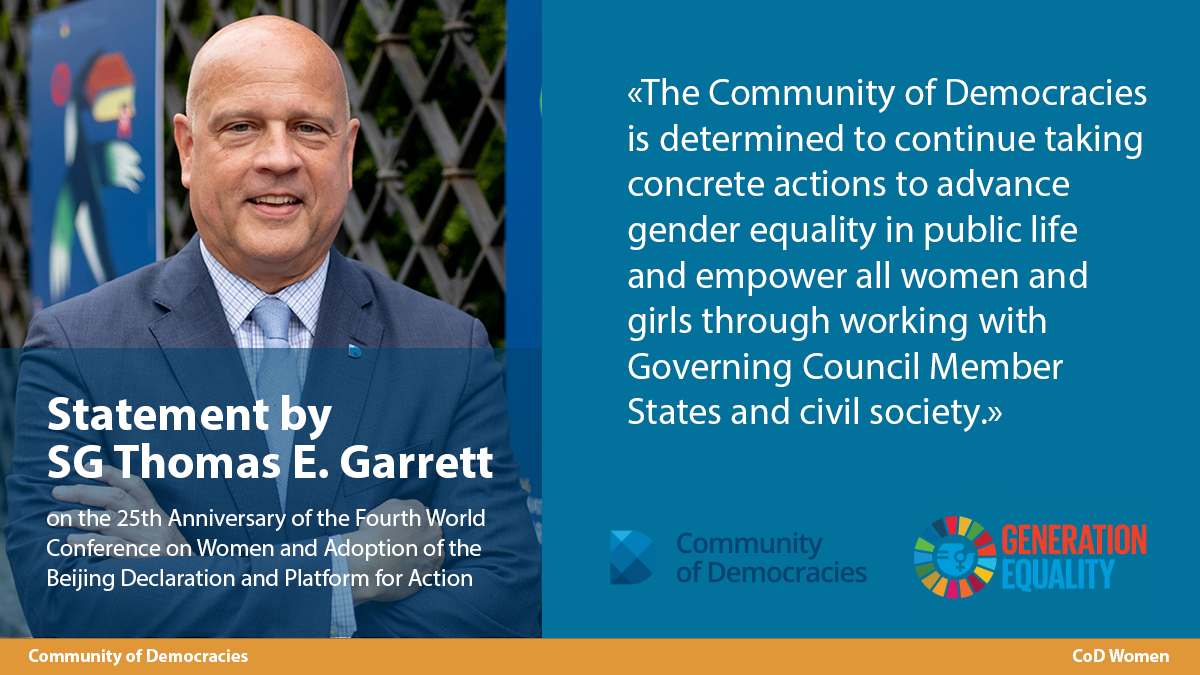

Statement by the Secretary General Thomas E. Garrett on the 25th Anniversary of the Fourth World Conference on Women and Adoption of the Beijing Declaration and Platform for Action
In 1995, UN member states convened in Beijing at the Fourth World Conference on Women, seeking to advance equality for all women everywhere in all humanity’s interests.
The Conference adopted the Beijing Declaration. It underlined that women’s empowerment and their full participation based on equality in all spheres of society, including participation in the decision-making process and access to political leadership, are fundamental for achieving gender equality, development, peace, and stability.
Twenty-five years after adopting the Beijing Declaration, women are still underrepresented in political decision-making and official peace processes at almost every level in nearly every country despite substantial progress made. At the same time, women are at the heart of democracy and peace movements in many places, such as Belarus, Sudan, Colombia, the Philippines, and others.
In 2020, the COVID-19 pandemic has brought new challenges to women’s political participation and gender equality. Despite novel obstacles, women from the Republic of Korea, Norway, Canada, New Zealand, and others lead in crisis times. Strong leadership qualities, such as integrity, empathy, and clear communication, are helping women respond to the pandemic effectively.
Since the moment of its inception, the Community of Democracies has been promoting the Beijing Declaration’s values that are in line with the CoD Warsaw Declaration that recognizes the importance of women’s participation in all areas as a crucial component of a democracy. The Community of Democracies is determined to continue taking concrete actions to advance gender equality in public life and empower all women and girls through working with Governing Council Member States and civil society.



